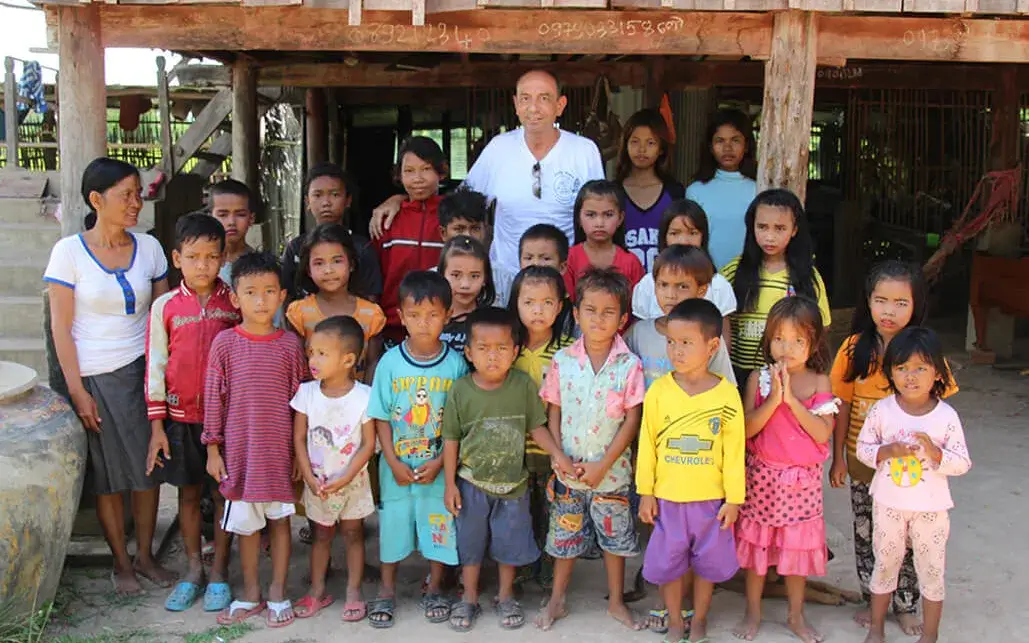Sonia Bussu & Jessica Wenban-Smith: "Big Local is about bringing together all the local talent, ambition, skills and energy"
What is Big Local and how does it work? Two members of the Local Trust team help us better understand this programme.
What is the aim of Big Local?
Big Local is a programme funded by the Big Lottery Fund and delivered by the organisation we work for, Local Trust. It's an exciting opportunity for residents in 150 areas across England to make a lasting and positive difference to their communities. Each area receives at least £1m and a range of support over more than 10 years.
What makes Big Local unique is that it’s entirely resident-led, so residents in each area decide how to use this money. Big Local is about bringing together all the local talent, ambition, skills and energy from individuals, groups and organisations who want to make their area an even better place to live.
How were the 150 areas selected?
These 150 areas are quite small, with an average population of 7000 people. They were selected by the Big Lottery Fund because they had not previously benefitted from Lottery money and face issues such as high levels of unemployment and general economic decline, often as a result of de-industrialisation processes.
Who makes decisions in each community and how?
In the initial phase existing volunteer and grassroots groups played an important role in reaching out to people and mobilising residents to get involved in the process. Some areas have a more vibrant social fabric than others and so in some cases the initial phase proved a bit more challenging.
During the initial phase each area formed a group of at least 8 volunteers, called Big Local partnership - or steering group.
Each partnership coordinates the Big Local programme in their area, by regularly consulting the community to identify what residents feel are the priorities for their area, producing and reviewing Big Local plans for the area and overseeing delivery of the plans. Residents work with a locally trusted organisation of their choice which helps them with administrative tasks and acts as the treasurer of the Big Local partnership.
What is the role of civil society organizations in the project?
Often a local civil society organisation chosen by the Big Local partnership will act as their locally trusted organisation to manage the money and support with all financial issues. The partnership members are all volunteers, so the support of a locally trusted organisation can ensure they can just focus their energy on involving the community and making decisions that reflect people’s priorities, rather than being burdened by a lot of administrative tasks.
Very often local civil society organisations and grassroots groups will also be very active in delivering the Big Local plan – for example local youth groups, faith groups, sports clubs or family centres may get involved in Big Local to help deliver certain activities, offer community facilities for Big Local events, or to act as connectors and help reach out to more people.
What are the challenges faced by the participant communities?
This varies from place to place. In some cases, residents in Big Local areas are unfamiliar with setting up the administrative side of the programme and need more support with this; in others, they find recruiting volunteers and keeping the community engaged to be an ongoing challenge.
The learning curve for the people involved is always very steep, but confidence is growing fast. Some Big Local areas are becoming very savvy at matchfunding to make their money go further and at forging collaborative partnerships and alliances locally, for instance with the local council or local health agencies. These new collaborations might prove crucial to ensure the sustainability of the programme, beyond the 10 years.
What kind of support provides Local Trust to communities?
Every Big Local area is supported by a Big Local rep, a dedicated community expert who can offer advice or support, often facilitating meetings and providing access to practical resources. Local Trust provides a range of support, including accredited skills training, learning and networking events, practical tools and how to guides.
These help areas with a number of common challenges, from working with local politicians and MPs to collaborating with universities on community-led research. Local Trust also offers programme guidance to support areas with a wide range of issues, from legal aspects and governance models to measuring the impact of their work. We also try to facilitate networking among areas, through a combination of dedicated face to face events to encourage peer learning and social media.
Big Local is a long-term project. What implications has this in its implementation?
Big Local is delivered in each areas over at least 10 years and is run by volunteers within each Big Local community, so sustaining energy and momentum is a key issue for every area.
The timescale of the programme is mostly an opportunity for areas: community capacity building takes time and Big Local gives these areas the chance to build long-term collaborations and build trust in communities that may have been disillusioned by short term initiatives in the past.
The evaluation of such a long programme also presents many challenges and opportunities. Local Trust coordinates a complex evaluation plan that includes a number of methods and involves external partners, from academia and other research organisations, to help us understand the impact of the programme. This research work is important in two ways: in the short-term we can feedback learning into programme delivery to improve it as we go along; in the long-term we aim to understand better the impact of a resident-led and light-touch approach to community work, and our findings might influence other funders.
What kind of impacts are achieved?
Our research to date has already identified some important impact, including in terms of increased confidence and social capital. These are early days: while some areas have been delivering their plan for several years, others have only just put together their first plan. We’ll continue to use rigorous research, evaluation and story-telling to learn; help areas achieve greater impact; and influence others to put residents in the lead.












Add new comment